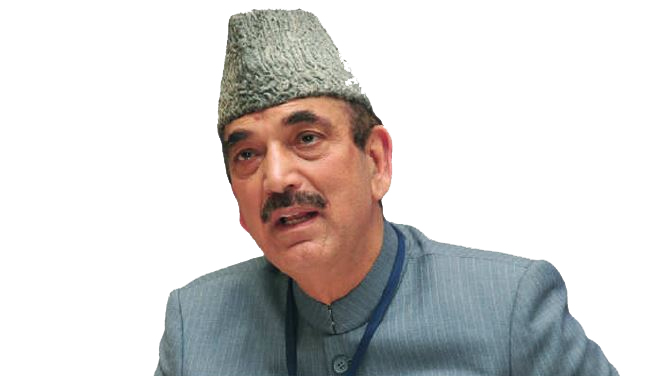news details |
|
|
| DPAP’s fate hangs in balance as Azad disappears from political arena | | |  Early Times Report Early Times Report
Jammu, Dec 8: Once a towering figure in Jammu and Kashmir politics and a former Chief Minister, Ghulam Nabi Azad has seen a marked retreat from the region’s political landscape following the poor performance of his newly formed Democratic Progressive Azad Party (DPAP).
Azad, a veteran politician with decades of experience, appears to have withdrawn from the forefront after his party faced debacles in both the Assembly and Lok Sabha elections, leaving political observers questioning the future of his political journey.
Azad launched the DPAP in 2022 amid significant media attention and public curiosity. The party was seen as a fresh attempt to challenge the traditional political order dominated by the National Conference (NC), the Peoples Democratic Party (PDP), and the Bharatiya Janata Party (BJP).
Azad’s political charisma and his long-standing connection with the region were expected to garner significant support, especially in the Chenab Valley and Pir Panjal areas, where he had previously commanded considerable influence.
However, the party's initial enthusiasm quickly dwindled as it struggled to secure a foothold.
In the Assembly elections, DPAP failed to make any notable impact, trailing far behind the established parties. The situation was no different in the Lok Sabha polls, where the party’s candidates were unable to secure even a respectable vote share.
The electoral setbacks seem to have dealt a severe blow to Azad's political ambitions. Once a vocal presence in political discussions and a frequent figure in public rallies, A Azad, a veteran politician with decades of experience, appears to have withdrawn from the forefront.
DPAP faced debacles in both the Assembly and Lok Sabha elections.
Azad launched the DPAP in 2022 but the party failed t o make any impact.
Azad’s absence from political and public discourse in recent months has been conspicuous.
Local observers note that Azad’s withdrawal has created a vacuum in the political discourse of Jammu and Kashmir, where he once wielded influence across the ideological spectrum. His absence is particularly felt in his erstwhile strongholds, where his supporters had pinned their hopes on him to bring development and political stability.
The DPAP’s lackluster performance has been attributed to various factors, including an unclear political agenda, lack of grassroots organization, and an inability to present a compelling alternative to voters.
Critics argue that Azad’s decision to part ways with the Congress, a party with which he had a long association, and venture into uncharted waters might have been premature. While Azad remains silent, questions linger about his next move. Will he attempt to rebuild his political base, or is this the twilight of his career in active politics? Political analysts suggest that a comeback is not impossible, given Azad’s experience and legacy, but it would require a clear strategy, reorganization of his party, and perhaps a shift in his approach to connecting with the electorate.
For now, the silence of Ghulam Nabi Azad speaks volumes, leaving his supporters and critics alike pondering the fate of a leader who once stood at the helm of Jammu and Kashmir's political scene. |
|
|
|
|
|
|
|
|
|
|
|
|
| |
| |
|
|
|
|
 |
|
|
|
|
STOCK UPDATE |
|
|
 |
| BSE
Sensex |
 |
| NSE
Nifty |
|
|
| |
CRICKET UPDATE |
|
|
|
|
|
| |
| |
|
|
| |
|
|
|
|
| |
|
|
|
|
|
|
|
|
|
|
|
|
|
